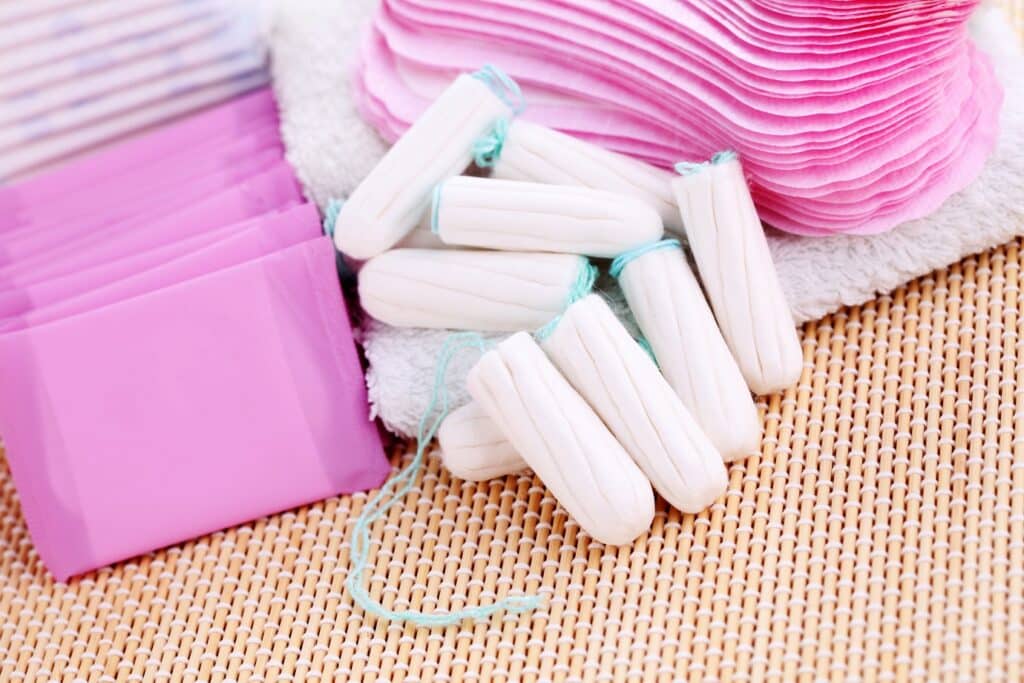New research from Plan International reveals a hidden, worldwide menstrual health crisis.
At least 500 million girls and women don’t have what they need to manage their period. That’s equivalent to one in four of the world’s female population of reproductive age not having access to sanitary products or a clean toilet.
“These issues have existed for a long time, but we know that the polycrisis has in many cases made the situation far, far worse – especially for girls,” said Susanne Legena, CEO of Plan International Australia.
“For millions of girls in the countries where Plan International operates, privately and safely managing menstruation and addressing the taboo and stigma associated with it is vital to ensuring their human rights, health and dignity – and these are all under threat right now.”
The research shows the combined effects of cost of living pressures, climate change, food insecurity and conflict around the world are affecting the ability of young people to access menstrual health and hygiene products to safely manage their periods.
Here in Australia, almost 6 in 10 Gen Z and Millennial women are finding it more difficult to pay for menstrual hygiene products due to the rising cost of living.
This alarming statistic comes out of a recent YouGov survey commissioned by the girls’ rights and humanitarian organisation, which included more than 500 Australian people who menstruate, in both city and regional areas, aged 18-42.
Results also showed that more than half (53 per cent) of Gen Z and Millennial women find it difficult to pay for menstrual pain management medication or treatment.
These financial difficulties are a struggle which 37 per cent say are having an impact on their mental health and wellbeing.
For Gen Z, the impact expands even further, with 1 in 4 saying this inability to pay for period products and pain management has had an impact on their sexual relationships, and 16 per cent saying it’s impacted their education and/or workplace participation.
“Over the last few years in particular, as the cost of living has worsened, I have really tried hard to destigmatize periods for myself, but there are always those elements of ‘ohh if I’m not changing my period products enough, will I smell? Will there be leakages?’ That’s going on the back of your mind,” said Plan International Australia youth activist Angelina.
“If your period lasts longer than a week, that is quite a long amount of time to be worrying about something in the back of your mind, which you wouldn’t have to worry about if you had adequate access to menstrual products – or if you did not have a uterus.”
Plan International says this lack of access to period management resources is just as bad, if not worse for countries outside of Australia as well.
In a survey that reflected the experiences of tens of thousands of young women in the Global South, 90.9 per cent of sexual, reproductive, and menstrual health experts said the current global crises have affected the ability of the girls and women they work with to access menstrual health management information or products.
Meanwhile, 96.3 per cent said, compared to before the current polycrisis, girls and young women are finding it harder to pay for menstrual health products. This has resulted in some adolescent girls engaging in exploitative sex to pay for menstrual health products, which research is showing leads to increased rates of sexually transmitted infections and unwanted pregnancies as well as a significant increase in early and forced marriage
Legena explains that Plan International’s new report– which will be released on 28 May for World Menstrual Hygiene day– “has laid bare how the compounding crises the world is facing- from the hunger crisis in the Horn of Africa, Yemen, Syria and many other countries; to climate disasters, such as the cyclone last week that razed some of the poorest settlements in Myanmar and Bangladesh; to horrific conflict and wars as we have witnessed in Ukraine, and Sudan; right through to the cost of living pressures bearing down of almost all corners of the world – have exacerbated period poverty, the struggle many low-income girls and women face while trying to afford menstrual products, and period stigma.”
“We are seeing this in Australia, and we are seeing this right across the globe, especially in the world’s most vulnerable communities,” said Legena.
“All girls and women around the world should have access to sexual and reproductive health rights, and no one’s well being should be limited by their period.”
Plan International Australia is currently distributing dignity kits to communities all around the world, full of essentials people who menstruate need to manage their periods during a crisis. You can donate a kit here.


